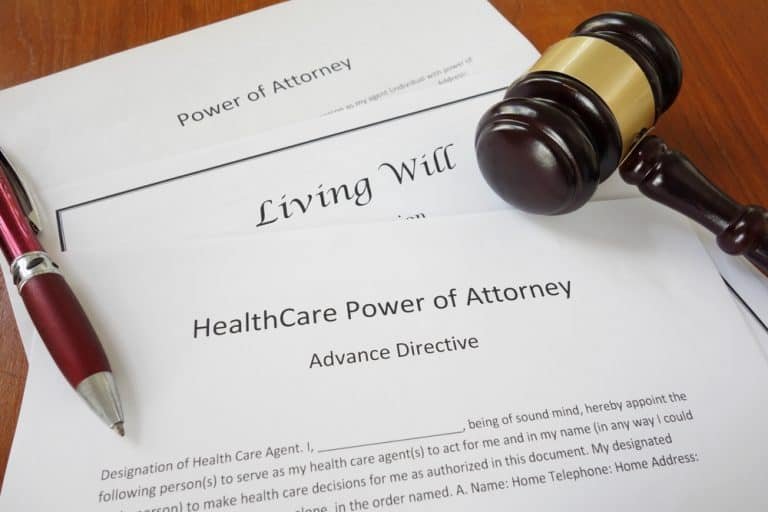Basic Legal Documents Everyone Needs
Everyone needs some basic estate planning documents to help make things easier for them and their families. Those documents include a will, durable power of attorney, healthcare power of attorney, and living will.
The Essential Legal Documents Everyone Should Have
Planning for the future is not just about finances—it’s about clarity, dignity, and peace of mind. Certain legal documents form the foundation of a solid plan, ensuring that your wishes are respected and that the people you trust can step in when needed. Whether you are young or old, healthy or facing changes, these core documents are essential for every adult.
A Will: Giving Direction After Death
A will is the document most people are familiar with, and for good reason. It allows you to direct where your property goes after your death, name guardians for minor children, and choose the person who will handle your estate. Without a will, state law determines these outcomes, which may not reflect your wishes or family dynamics. A properly drafted will gives your loved ones guidance and helps avoid unnecessary conflict or delay.
Durable Power of Attorney: Planning for Financial Decisions
A durable power of attorney allows you to appoint someone you trust to handle financial and legal matters on your behalf if you become unable to do so. This can include paying bills, managing bank accounts, filing taxes, or handling real estate. The word “durable” is key—it means the authority continues even if you are incapacitated. Without this document, your family may be forced to seek court intervention just to manage everyday financial tasks.
Healthcare Power of Attorney: Choosing Your Medical Decision-Maker
A healthcare power of attorney names the person who will make medical decisions for you if you cannot speak for yourself. This includes decisions about treatment options, care facilities, and end-of-life care. Having this document in place ensures that medical providers know who has authority to act and that decisions are made by someone who understands your values and wishes.
Living Will: Expressing Your End-of-Life Wishes
A living will works alongside your healthcare power of attorney by clearly stating your preferences about life-sustaining treatment. It typically addresses issues such as artificial nutrition, hydration, and life support in terminal or irreversible conditions. By putting these wishes in writing, you relieve loved ones of the burden of guessing what you would want during emotionally difficult moments.
Why These Documents Matter Together
Each of these documents serves a different purpose, but together they create a comprehensive safety net. They help prevent confusion, reduce stress for family members, and avoid unnecessary court involvement. Most importantly, they allow you to stay in control of your choices—both during your lifetime and after.
At Next Chapter Care Academy, we believe planning is an act of care. Understanding these foundational documents is the first step toward protecting yourself and the people who matter most, no matter what the future brings.
Medicaid Partnership Policies: An Overlooked Tool
Medicaid partnership policies are an important tool that can protect assets that many families and planners overlook.
Medicaid Partnership Policies: A Powerful Planning Tool for Long-Term Care
One of the most overlooked tools in long-term care planning is the Medicaid Partnership policy. These specialized long-term care insurance policies are designed to work alongside Medicaid, allowing individuals to plan for future care needs while also protecting a portion of their assets.
With a partnership policy, benefits paid by the insurance policy can provide dollar-for-dollar asset protection if Medicaid is later needed. In practical terms, this means assets equal to the amount paid out by the policy may be disregarded for Medicaid eligibility purposes—an important advantage for individuals who want to preserve savings for a spouse or family.
Partnership policies must meet specific state requirements and must be issued by a licensed insurance professional. Because Medicaid rules and partnership standards vary by state, these policies are not appropriate for every situation. However, they are often worth exploring for individuals with moderate assets who want a structured way to combine insurance planning with potential Medicaid eligibility in the future.
It is also important to understand that Medicaid eligibility rules—such as asset limits and look-back periods—are separate from the terms of an insurance policy and should be reviewed as part of an overall planning strategy. Coordinating long-term care insurance with legal documents, financial planning, and realistic care expectations helps families prepare more effectively for the future.
Education is the first step toward protecting your independence and your legacy.
The Basics of Long Term Care Insurance
When dealing with long term care, there are several options to navigate. This article covers the basics of benefits amounts, benefit periods and other options you' will have to make when selecting a long term care policy.
Understanding Long-Term Care Insurance: Options, Coverage, and Key Choices
Long-term care insurance (LTCI) has evolved significantly over the past several decades. What began as a period of trial and error has developed into a more standardized system, shaped largely by national model rules introduced in the early 1990s to promote consistency among states. While long-term care insurance remains state-regulated and some variation still exists, today’s options are far more structured and predictable than in the past.
There are two primary types of long-term care insurance policies. Traditional (stand-alone) policies are often the least expensive option and typically allow greater flexibility in tailoring benefits. Combination or linked-benefit policies, on the other hand, are tied to life insurance or annuities and may provide a benefit even if long-term care is never needed. Each type of policy has advantages depending on an individual’s goals, health, and financial situation.
Coverage can also vary widely. Some policies cover facility-only care, while others focus on home health care, and still others offer comprehensive coverage that includes both. Choosing the right scope of coverage is especially important as more individuals prefer to receive care at home for as long as possible.
Understanding benefit choices—such as daily or monthly benefit amounts, benefit periods, elimination periods, and inflation protection—can make the difference between a policy that meaningfully supports a long-term care plan and one that falls short. Long-term care insurance is most effective when it is coordinated with broader financial and legal planning.
Next Chapter Care Academy helps families understand these options so they can make informed, confident decisions about the future.
Medcaid v. Medicare: What’s The Difference?
A couple sits around the table while the man is assited by a healtcare assistant
When planning for healthcare—especially long-term care—two programs come up often: Medicare and Medicaid. They sound similar, but they operate very differently. Understanding the distinction helps families make better decisions and avoid costly surprises.
Medicare: Federal Health Insurance
Medicare is a federal program that mainly covers adults 65+ and certain younger individuals with disabilities.
What it covers
Hospital care (Part A)
Doctor visits and outpatient care (Part B)
Prescription drugs (Part D)
Optional Medicare Advantage plans (Part C)
What it does not cover
Medicare offers only short-term skilled care, such as rehab after an illness or surgery. It does not cover long-term custodial care, including:
Assisted living
Memory care
Most nursing home stays
Help with daily activities like bathing or dressing
This is one of the biggest misconceptions families face.
Medicaid: Health Coverage Based on Need
Medicaid is a state–federal program that provides healthcare for people with limited income and assets.
What it covers
Unlike Medicare, Medicaid is the primary payer for long-term care in the U.S. It can cover:
Nursing homes
Home- and community-based services
Adult day care
Certain assisted-living or home-care programs (depending on the state)
Eligibility depends on meeting financial limits and demonstrating medical need.
If you’re faced with the prospect of needing long term care, you will not be able to rely on Medicare. And in order to qualify for Medicaid, you will need to be under certain asset and income limits. Your family needs to have a plan for how to deal with extended long term care needs.
Four Ways to Pay for Long Term Care
When it comes to planning for the future, one of the biggest concerns many families face is how to pay for long-term care. Whether care is provided at home, in assisted living, or in a nursing facility, costs can add up quickly. Understanding your options now can help you make informed decisions later.
1. Private Pay
Many people begin by paying for care out-of-pocket, using savings, retirement income, or proceeds from selling assets. Private pay gives families the most flexibility when choosing care providers and facilities. However, the financial impact can be significant, and even a few years of care can quickly erode lifetime savings.
When it comes to planning for the future, one of the biggest concerns many families face is how to pay for long-term care. Whether care is provided at home, in assisted living, or in a nursing facility, costs can add up quickly. Understanding your options now can help you make informed decisions later.
1. Private Pay
Many people begin by paying for care out-of-pocket, using savings, retirement income, or proceeds from selling assets. Private pay gives families the most flexibility when choosing care providers and facilities. However, the financial impact can be significant, and even a few years of care can quickly erode lifetime savings.
2. Long-Term Care Insurance
Long-term care insurance can help cover costs that traditional health insurance or Medicare will not. Policies vary, but most provide a daily or monthly benefit to help pay for care at home, in assisted living, or in a nursing home. Purchasing coverage early—typically in your 50s or 60s—can make premiums more affordable and ensure coverage is in place before health issues arise.
3. Veterans Benefits
Qualified veterans and their surviving spouses may be eligible for assistance through programs such as the Aid and Attendance benefit. This monthly benefit can help pay for in-home care, assisted living, or nursing home costs. Eligibility is based on service, income, assets, and medical need, and it can be an invaluable resource for veterans and their families.
4. Medicaid
Medicaid is a joint federal and state program that provides long-term care coverage for individuals with limited income and assets. While it often covers the full cost of nursing home care, qualifying for Medicaid can be complex. Planning ahead—ideally with professional guidance—can help protect assets and ensure eligibility when care is needed.
Final Thoughts
Each of these options plays an important role in a comprehensive long-term care plan. By understanding how they work together, you can take proactive steps to secure the care you need while protecting what you’ve worked hard to build.
Understanding Your Extended Care Options
Understanding Your Long-Term Care Options
When planning for the future, it’s important to understand the different types of long-term care available. Whether you’re exploring support at home or considering facility-based options, knowing the basics helps you make informed choices that fit your needs and lifestyle.
In-Home Care
In-home care allows individuals to remain in the comfort of their own homes while receiving assistance with daily tasks. Services can range from part-time help with meals and housekeeping to full-time skilled nursing care.
Adult Day Services
Adult day programs provide a safe and engaging environment for seniors during the day while caregivers work or take time to rest. These centers often offer social activities, meals, and limited medical support.
Assisted Living
Assisted living communities offer residents private or semi-private apartments with access to meals, social activities, and personal care support. It’s ideal for individuals who need help with daily living but still want an active, independent lifestyle.
Nursing Homes
Nursing homes, or skilled nursing facilities, provide 24-hour medical care and supervision. These settings are best suited for individuals with chronic medical conditions or those needing ongoing rehabilitation after illness or injury.
Memory Care
Memory care facilities specialize in supporting individuals with Alzheimer’s disease or other forms of dementia. They offer structured routines, secure environments, and specially trained staff to enhance safety and quality of life.
Continuing Care Retirement Communities
These communities provide a full spectrum of care—from independent living to skilled nursing—all within one campus. This allows residents to transition smoothly as their care needs change over time.
Why Do Activities of Daily Living Matter?
Understanding the Seven Activities of Daily Living
A Quick Reference from Next Chapter Care Academy
When it comes to long-term care planning, few concepts are as important as the Activities of Daily Living (ADLs). These are the basic tasks we all perform to care for ourselves each day. Understanding them is the first step in recognizing when a loved one may need additional help — and in planning effectively for future care.
The Seven ADLs
Bathing & Personal Hygiene
Being able to bathe, groom, and maintain personal cleanliness.Dressing
Selecting appropriate clothing and dressing independently.Eating
Feeding oneself, whether or not meals are prepared by someone else.Transferring
Moving from one position or place to another, such as getting in and out of bed or a chair.Mobility
The ability to walk or move about safely, with or without assistive devices.Toileting
Getting to and from the toilet and maintaining personal hygiene afterward.Continence
Managing or controlling bladder and bowel function.
Why ADLs Matter
ADLs are used by healthcare providers, insurers, and long-term care programs to measure a person’s level of independence and determine what kind of assistance or services are needed. Understanding them can help you:
Identify early signs that extra care may be needed.
Plan ahead for home care, assisted living, or nursing support.
Navigate benefit programs such as Medicaid long-term care coverage.
💡 Free Resource:
Download our Quick Reference Guide to the Activities of Daily Living — a simple, printable chart you can keep on hand to track changes and plan for the next chapter in care.
Top Three Myths About Extended Care
Three common myths about extended care and long term care needs - denunked in five minutes!
🏡 The Top 3 Myths About Extended Care — And the Facts Every Family Should Know
When it comes to planning for extended or long-term care, there’s no shortage of advice — and unfortunately, much of it is wrong. Misunderstanding how extended care works can lead to serious financial, legal, and emotional stress for families.
At Next Chapter Care Academy, we believe that knowledge is the first step toward peace of mind. Below, we’re tackling three of the most common myths we hear from families — and the real facts you need to know before making important care decisions.
🧓 Myth #1: “I’ll lose everything if I go into a nursing home.”
Fact: There are a variety of planning options available that may help preserve your assets if you need extended care.
Too many families believe that entering a nursing home means automatic financial devastation. The truth is, with proper planning — whether through Medicaid strategies, trusts, or legal exemptions — it’s often possible to protect a significant portion of what you’ve worked so hard to build.
Understanding how different care programs treat income and assets is key. Planning early gives you the flexibility to make informed decisions before a crisis hits — not after.
👪 Myth #2: “The easiest thing to do is give everything to my children.”
Fact: This can have serious legal and financial consequences — and it’s rarely the best decision for an extended-care plan.
While gifting assets may seem like a simple solution, it often creates more problems than it solves. Transferring property or money can trigger Medicaid look-back penalties, tax implications, or family disputes.
There are safer, smarter ways to include your children in your care plan. With the right legal guidance and long-term care planning tools, you can protect your assets and maintain flexibility — without exposing your family to unnecessary risk.
💊 Myth #3: “Medicare will pay for my extended care.”
Fact: Medicare only covers skilled care, and only for a limited period of time. Extended care — which involves assistance with daily living activities like bathing, dressing, and eating — is not covered by Medicare.
This is one of the most dangerous misunderstandings about aging and care. Many seniors enter retirement believing Medicare will handle the cost of long-term assistance, only to find themselves facing thousands in unexpected out-of-pocket expenses.
Extended care planning helps you understand your coverage limits, anticipate future costs, and explore alternative funding options — such as long-term care insurance, veterans benefits, or Medicaid eligibility planning.
🌿 The Bottom Line
Extended care doesn’t have to mean losing control — or losing everything you’ve built. The key is education and proactive planning.
At Next Chapter Care Academy, our mission is to help families make informed, confident choices about their loved ones’ care. Our upcoming course, “Senior Care Basics,” provides step-by-step guidance on understanding care options, costs, and planning strategies designed to protect your family’s future.
💙 Because every family deserves peace of mind in their next chapter of care.







